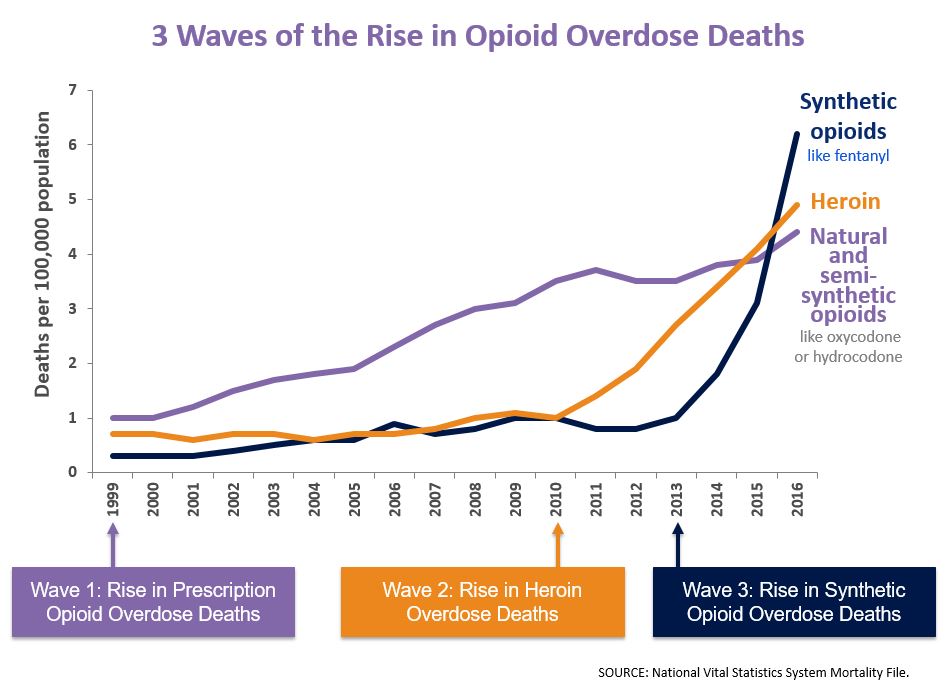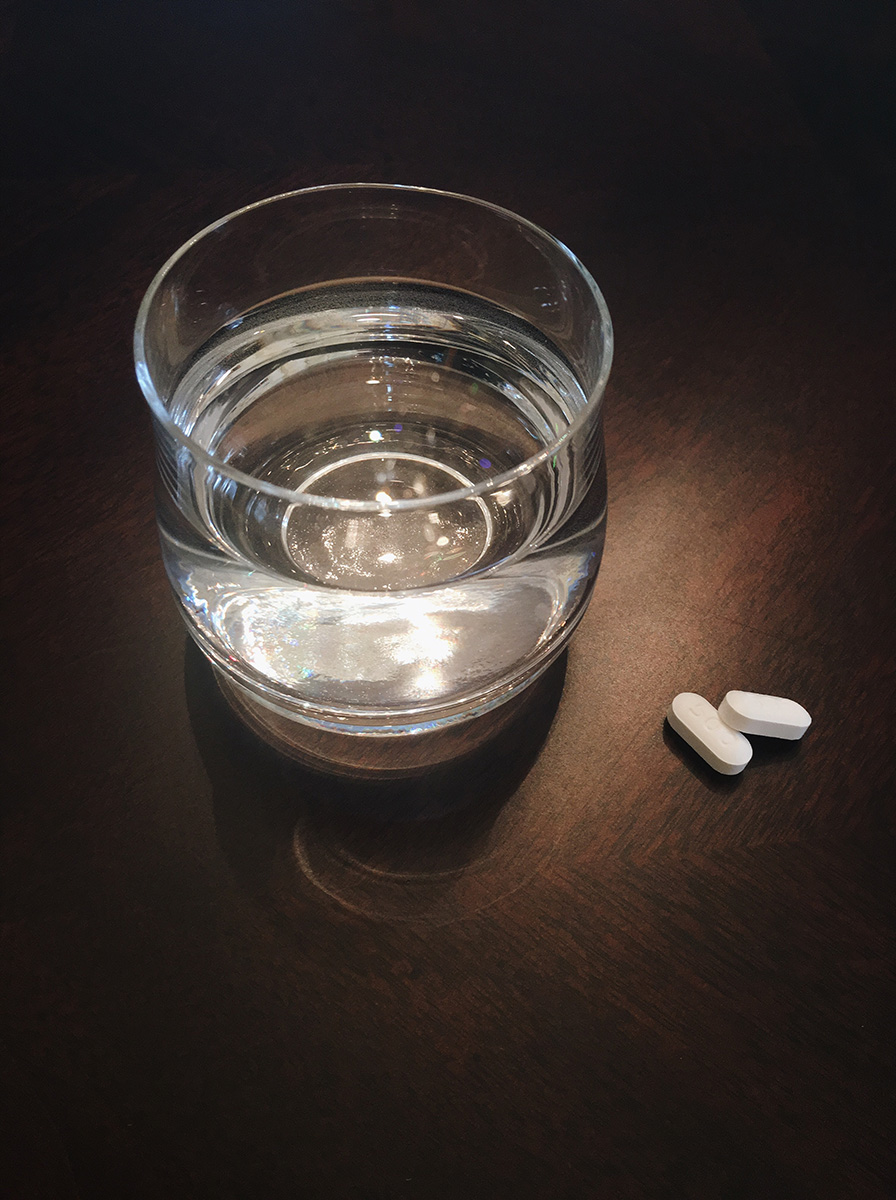In some states, many drug overdoses are so broadly classified that they are not being counted properly as opioid-related.
Blog – News and Articles
Purdue Pharma, the company that manufactures the highly addictive painkiller OxyContin, laid off its entire sales force.
The surge in U.S. kids taking medication for attention-deficit hyperactivity disorder (ADHD) is having an unintended side effect, a new study suggests: more children and teens are overdosing on these drugs.
Open drug use has exploded in San Francisco in recent years, enraging residents who complain of having to step over people injecting heroin in train stations and to traverse a seemingly unending series of tent villages on sidewalks and bike paths
Walmart and Sam's Club's pharmacies will limit opioid dispensing to some customers to a seven-day supply, as the retail giant moves to help stem the epidemic that kills more than 100 Americans a day.
Arizona has recorded its first death involving Carfentanil overdose, a synthetic opioid that’s 5,000 times more potent than heroin, and 100 times more powerful than fentanyl.
No one will be criminally charged in the 2016 death of Prince by accidental fentanyl overdose, law enforcement authorities in Minnesota announced on Thursday, saying that they could not determine who had provided the powerful drug that killed him.
The Food and Drug Administration on Tuesday ordered a mandatory recall of a Las Vegas company's powdered kratom products because salmonella was found in the herbal supplement.
Combatting the Opioid Overdose Epidemic
CDC is committed to fighting the opioid overdose epidemic and supporting states and communities as they continue work to identify outbreaks, collect data, and respond to overdoses, and provide care to those in their communities. CDC’s Prevention for States and Data-Driven Prevention Initiative programmatic aims center around the enhancement of PDMPs within clinical and public health settings, insurer and community interventions, evaluation of state-level policies, and other innovative strategies that states can employ. CDC’s Enhanced State Opioid Overdose Surveillance program aims to support and build the capacity of states to monitor the epidemic by improving the timeliness and quality of surveillance data focusing on both fatal and nonfatal opioid overdose.
Drug overdose deaths continue to increase in the United States.
- From 1999 to 2016, more than 630,000 people have died from a drug overdose.
- Around 66% of the more than 63,600 drug overdose deaths in 2016 involved an opioid.
- In 2016, the number of overdose deaths involving opioids (including prescription opioids and illegal opioids like heroin and illicitly manufactured fentanyl) was 5 times higher than in 1999.
- On average, 115 Americans die every day from an opioid overdose.

From 1999-2016, more than 350,000 people died from an overdose involving any opioid, including prescription and illicit opioids.
This rise in opioid overdose deaths can be outlined in three distinct waves.
- The first wave began with increased prescribing of opioids in the 1990s 2, with overdose deaths involving prescription opioids (natural and semi-synthetic opioids and methadone) increasing since at least 1999.
- The second wave began in 2010, with rapid increases in overdose deaths involving heroin.
- The third wave began in 2013, with significant increases in overdose deaths involving synthetic opioids – particularly those involving illicitly-manufactured fentanyl (IMF). The IMF market continues to change, and IMF can be found in combination with heroin, counterfeit pills, and cocaine.
Combatting the Opioid Overdose Epidemic
CDC is committed to fighting the opioid overdose epidemic and supporting states and communities as they continue work to identify outbreaks, collect data, and respond to overdoses, and provide care to those in their communities. CDC’s Prevention for States and Data-Driven Prevention Initiative programmatic aims center around the enhancement of PDMPs within clinical and public health settings, insurer and community interventions, evaluation of state-level policies, and other innovative strategies that states can employ. CDC’s Enhanced State Opioid Overdose Surveillance program aims to support and build the capacity of states to monitor the epidemic by improving the timeliness and quality of surveillance data focusing on both fatal and nonfatal opioid overdose.
CDC’s work focuses on:
- Building prevention efforts by equipping states with resources, improving data collection, and supporting the use of evidence-based prevention strategies.
- Improving data quality and tracking trends to better understand and respond to the epidemic. Collecting and analyzing data on opioid-related overdoses to better identify areas that need assistance and to evaluate prevention efforts.
- Supporting healthcare providers and health systems with data, tools, and guidance for evidence-based decision-making to improve opioid prescribing and patient safety.
- Partnering with public safety officials, including law enforcement, to address the growing illicit opioid problem.
- Encouraging consumers to make safe choices about opioids and raising awareness about prescription opioid misuse and overdose.
Collaboration is essential for success in prevention opioid overdose deaths. Medical personnel, emergency departments, first responders, public safety officials, mental health and substance abuse treatment providers, community-based organizations, public health, and members of the community all bring awareness, resources, and expertise to address this complex and fast-moving epidemic. Together, we can better coordinate efforts to prevent opioid overdoses and deaths.
Read more about CDC’s role in the opioid overdose epidemic.
In 2016, nearly 35 out of every 100,000 people between the ages of 25 and 34 died of a drug overdose, according to the CDC. These figures include all drug overdose deaths, not just those from opioids.











